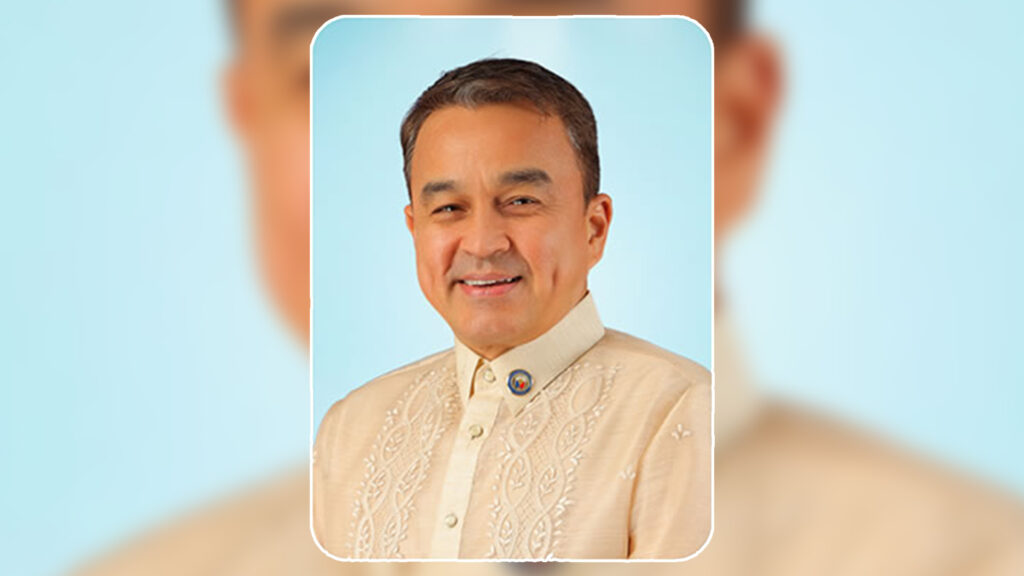For more than three decades now, altering the Philippines’ basic law, otherwise known as the 1987 Constitution, has been a contentious matter. In this case, Representative Robert “Ace” Barbers of Surigao del Norte has been a key figure advocating for Charter change, or cha-cha, working through a resistant Senate and an unsure public.
Barbers’ political career dates to 1998 covering several administrations that have experienced different efforts at cha-cha. He consistently maintained his position that there was a need to adapt the Constitution to changing realities.
He was an active participant in the cha-cha push during Presidents Gloria Macapagal-Arroyo’s and Rodrigo Duterte’s presidency but success always eluded him.
The current push towards cha-cha, mainly through People’s Initiative, or PI, is heavily countered by the Senate among other challenges. This has made Barbers feel let down by the Senate vis-a-vis their rejection of con-con or con-ass as alternative options leading to the so-called economic cha-cha in which restrictive provisions of the Charter are amended.
The Senate, unlike the House, has been consistently against amending the Constitution, which cha-cha proponents said is needed to entice more investments, which is viewed as lagging behind its ASEAN neighbors, such as Vietnam, which has a socialist system but whose Constitution is more open to foreign capital.
The conflicting positions sparked intense verbal sparring between congressmen and senators.
Barbers recently took a swipe at senators whom he said pretend to support the move but exploit every opportunity to derail it. Senators, he said, are afraid to get out of their “comfort zones.”
He lamented the inequality in the provision on the terms of legislators in which senators are allowed a total of 12 years or two consecutive terms and can retain their posts if they aspire and lose in a presidential or vice-presidential race.
“As far as our job description is concerned, we both make laws. Nothing will pass without the part from each of the chambers. We do investigations in aid of legislation; we pass a resolution; and all these legislative things.”
“What makes them so special that they have six years per term, and we only have three?” Barbers put forward.
Barbers has no qualms about revising the Constitution as he proclaimed: “I am for Charter change.”
Barbers began his legislative career in 1998 during the stint of former President Joseph “Erap” Estrada.
“When Erap was pushing for Concord (Constitutional Correction for Development), the directions were not clear on what to amend.”
Not under Erap
“I didn’t want to gamble so I didn’t support the Concord of Erap. But when GMA took over and was pushing for a cha-cha, we were helping her. That is when I started to push and advocate cha-cha,” he explained.
Cha-cha attempts since 1997 have failed due to suspicions that the move is a veiled attempt by politicians for term extension.
Such concerns are rooted in the late Ferdinand Marcos Sr.’s era, which used
cha-cha to skirt a term limit, according to Dante Gatmaitan of the University of the Philippines College of Law.
With his son, Marcos Jr., at the helm, some are having second thoughts about the renewed efforts believed initiated in the House by his cousin, Speaker Martin Romualdez, who is being suspected as the architect of the ongoing People’s Initiative or PI push to tweak the Charter.
According to Article 17 of the Constitution, the Charter could only be amended or revised through a constitutional convention, constituent assembly, or a PI.
However, PI can only be undertaken to propose amendments, not the vaster revision that will require a deliberative body.
Members of the House have been on the receiving end of dirty accusations, tirades, and public backlash. Rodrigo Duterte, the first-ever Mindanaoan president, is one with the senators in rejecting the House’s cha-cha pitch.
The outspoken erstwhile president slammed the PI efforts, alleging it would only perpetuate his successor, President Ferdinand Marcos Jr., and other sitting officials in power.
Barbers, who belong to the supermajority coalition allied with the President, downplayed such allegations and affirmed that money is not involved in the collection of signatures for a PI, purportedly being shepherded by House leaders.
“No one is advocating term extension. That’s just their imagination,” Barbers added.
“Anyone who wants to sign can sign. There is no signature-buying. There is not even a pressure from my end.”
The nationwide collection of signatures continues despite the Commission on Elections, or Comelec, decision to stop all PI proceedings, including accepting signature sheets in local offices.
In his district in Surigao del Norte, Barbers said he collected signatures from 28 percent of residents, which is significantly far more than the required 3 percent threshold for each legislative district.
The majority of pro-cha-cha forces in the House are frustrated by the senators’ reluctance to jump on the bandwagon.
Two House bills, Resolution of Both Houses 6 and House Bill 7352, were passed which are both crucial for cha-cha HB 7352 called for a constitutional convention, or con-con, the third mode in amending the Charter after the opposition-dominated Senate rejected RBH 2 seeking cha-cha through a constitutional assembly — during the 18th Congress.
Barbers lamented how the Senate manages to turn a blind eye despite the urgency of revising the restrictive provisions of the Constitution for the nation to be in step with its neighbors.
“Everything has been given to you,” he said, referring to senators. “They don’t want to carry it out via con-ass; they rejected con-con. Now, they are turning down PI? Then what do you want?”
“There is a group that initiated the people’s initiative, they suspect us of being behind it?”
In the decades he has been calling for reforms, Barbers firmly believes that the 37-year-old fundamental law of the land must adapt to the changing needs of the time.
